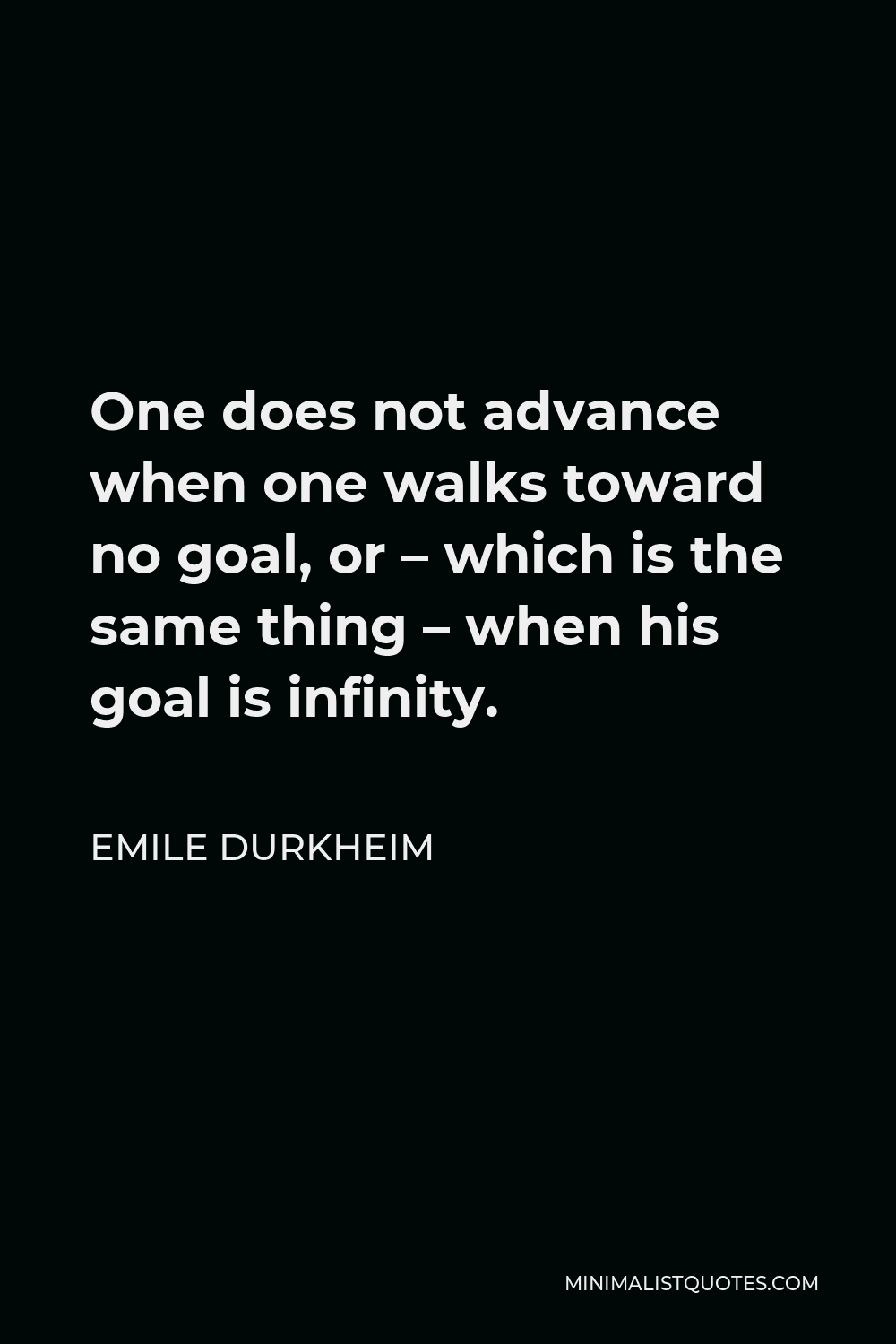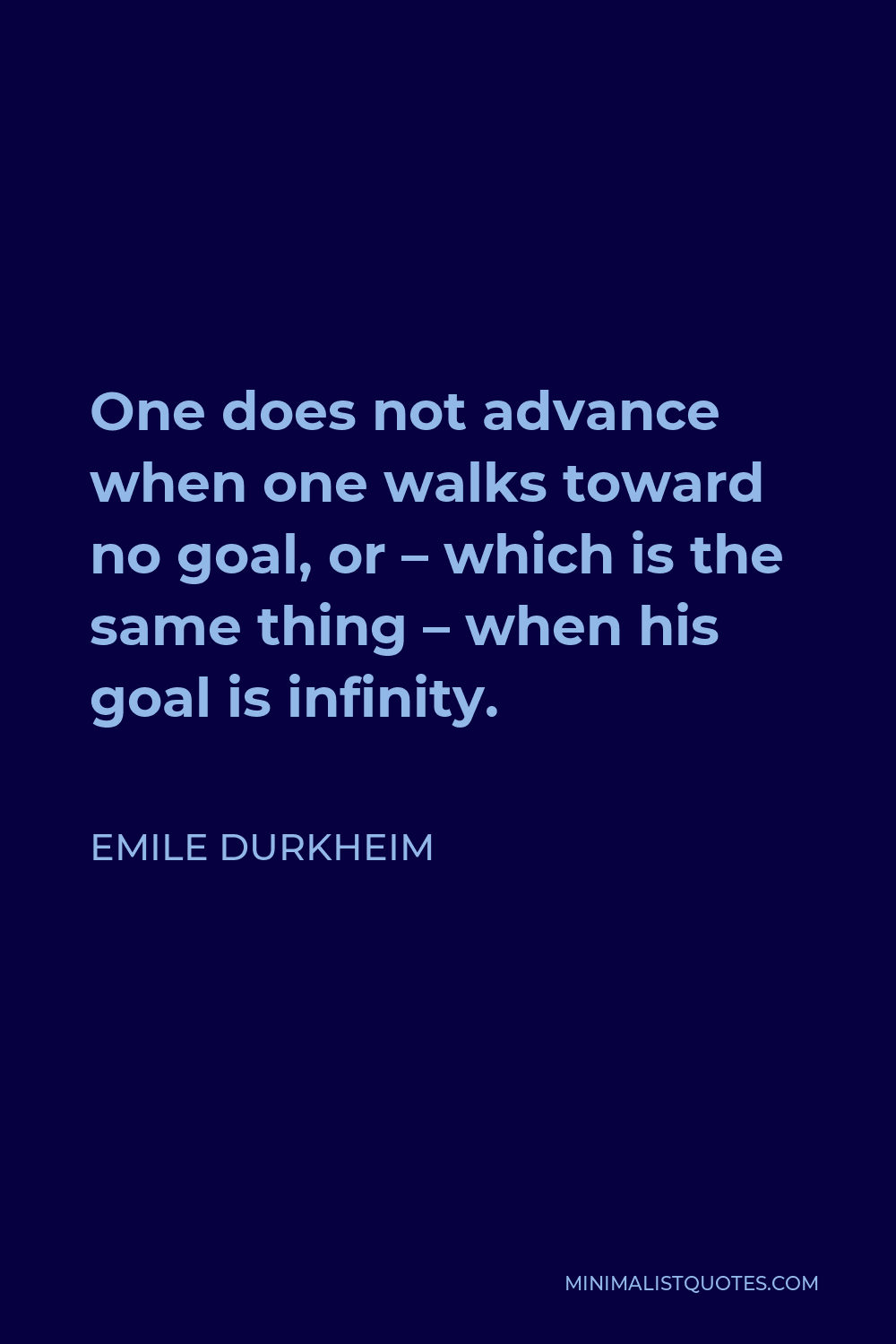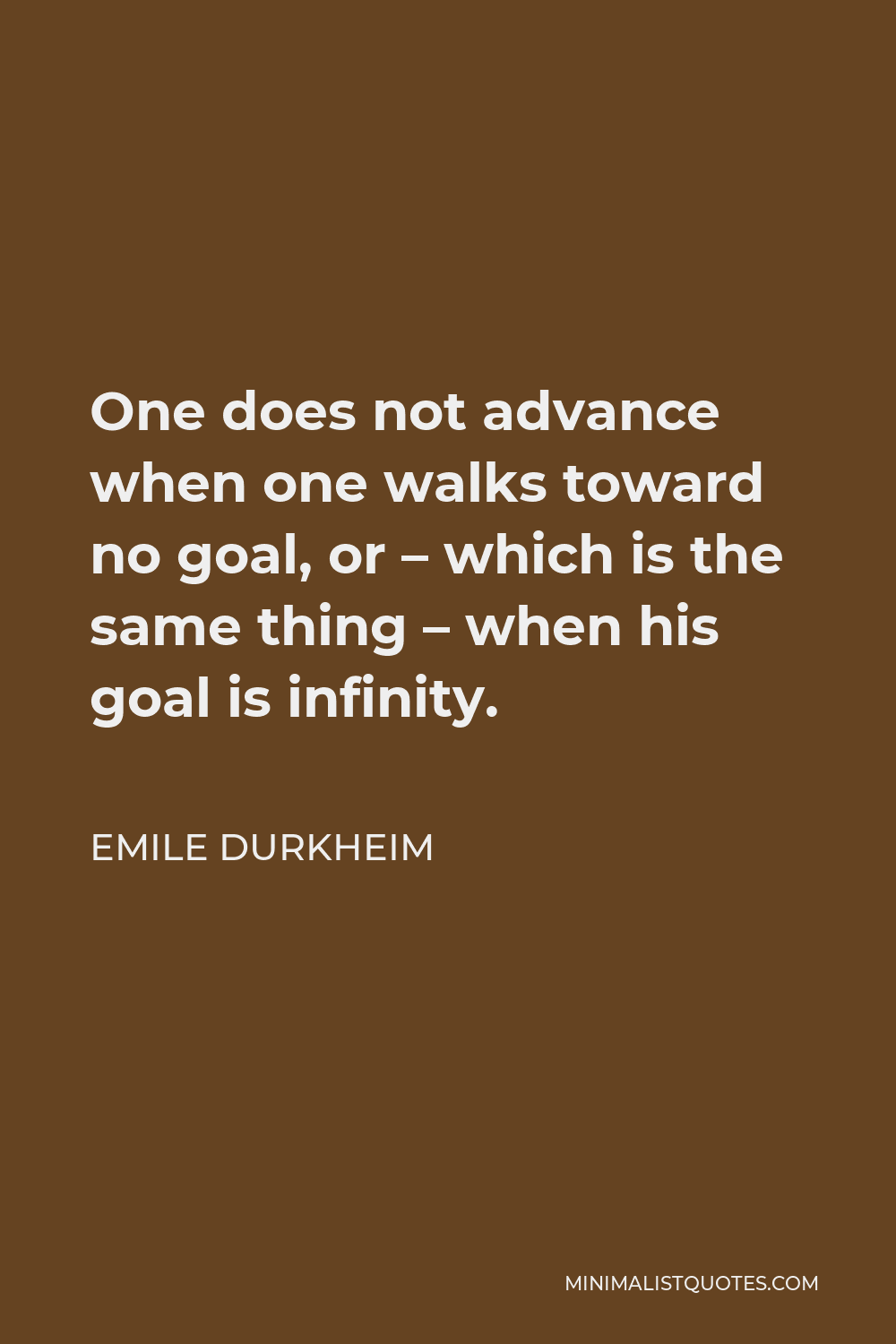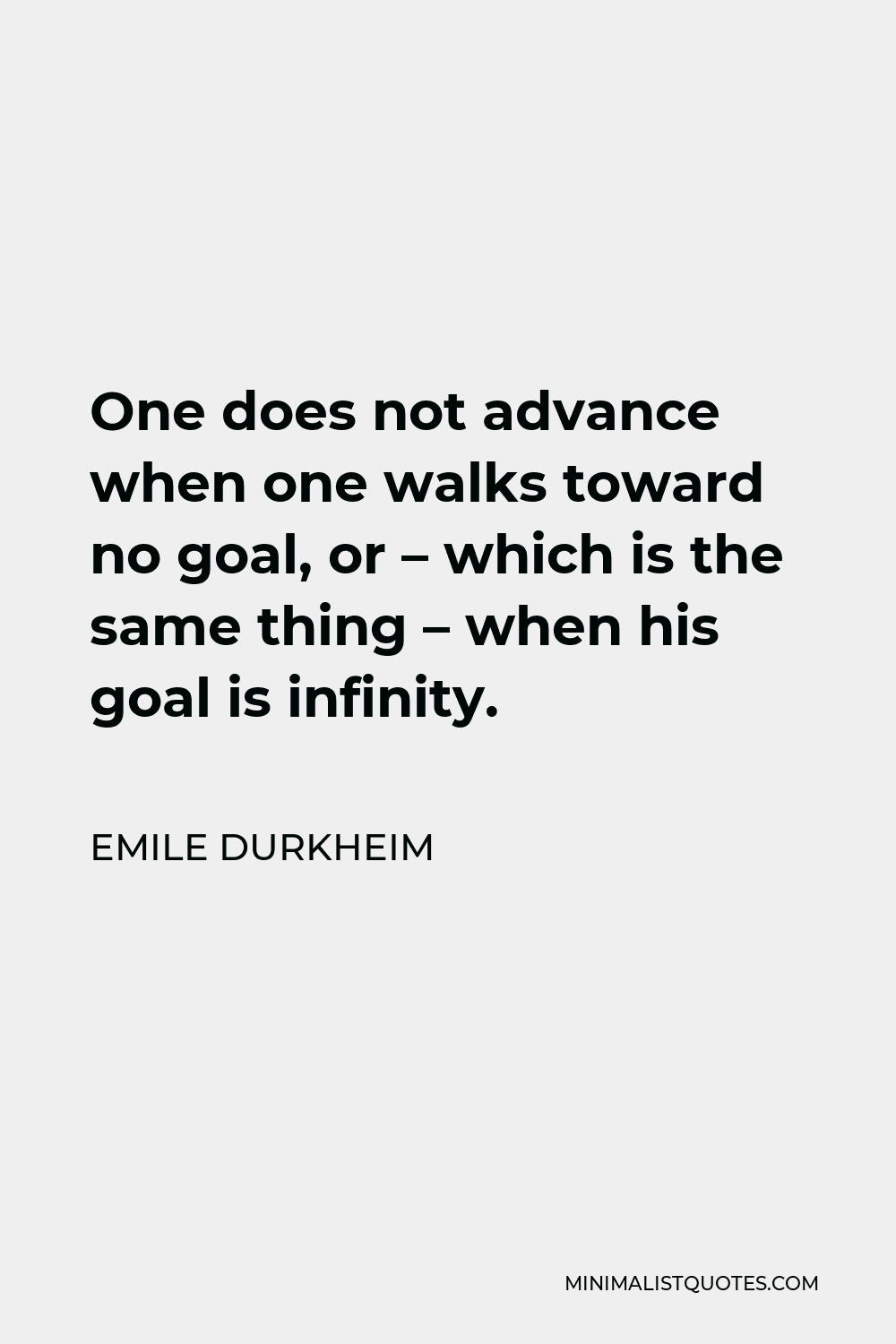Religious phenomena are naturally arranged in two fundamental categories: beliefs and rites. The first are states of opinion, and consist in representations; the second are determined modes of action.
EMILE DURKHEIMOne does not advance when one walks toward no goal, or – which is the same thing – when his goal is infinity.
More Emile Durkheim Quotes
-





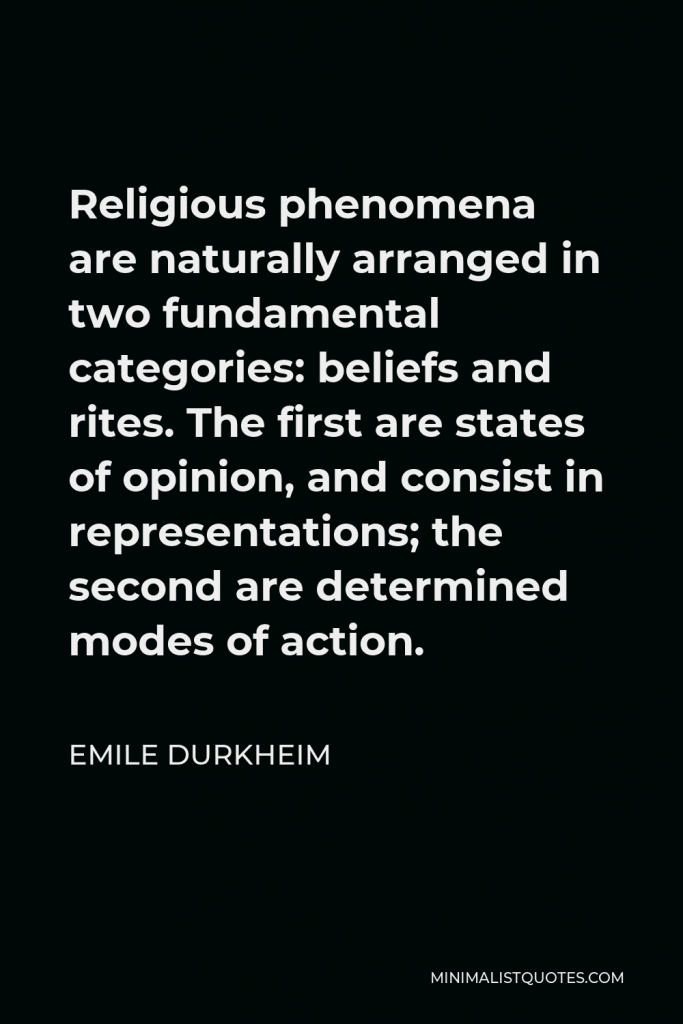

-





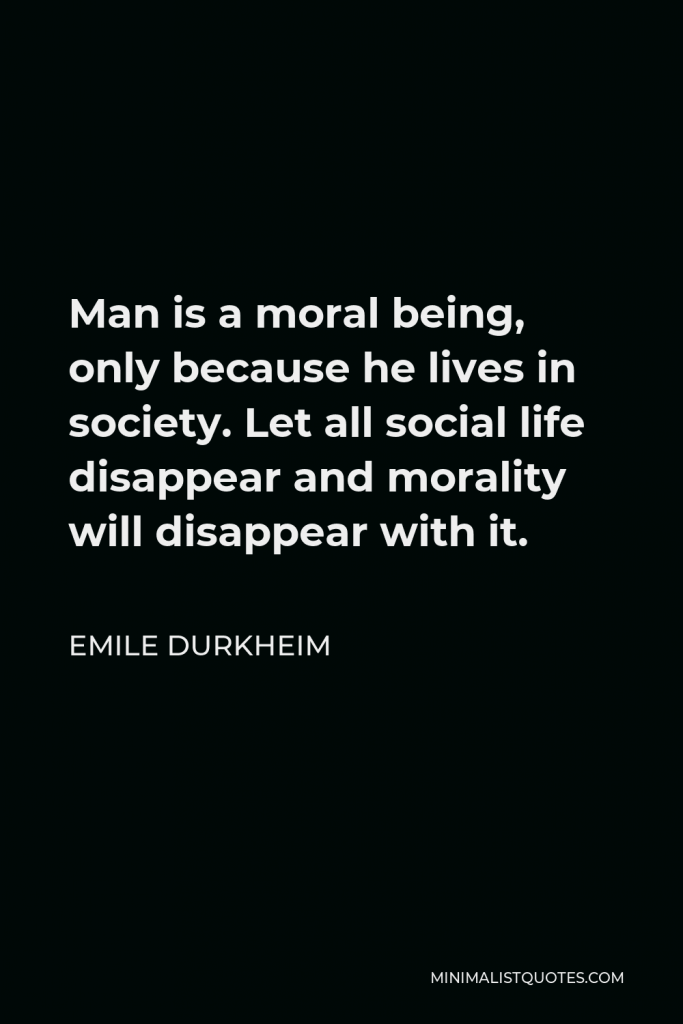

Man is a moral being, only because he lives in society. Let all social life disappear and morality will disappear with it.
EMILE DURKHEIM -







A monomaniac is a sick person whose mentality is perfectly healthy in all respects but one; he has a single flaw, clearly localized. At times, for example, he has an unreasonable and absurd desire to drink or steal or use abusive language; but all his other acts and all his other thoughts are strictly correct.
EMILE DURKHEIM -







Maniacal suicide. -This is due to hallucinations or delirious conceptions. The patient kills himself to escape from an imaginary danger or disgrace, or to obey a mysterious order from on high, etc.
EMILE DURKHEIM -





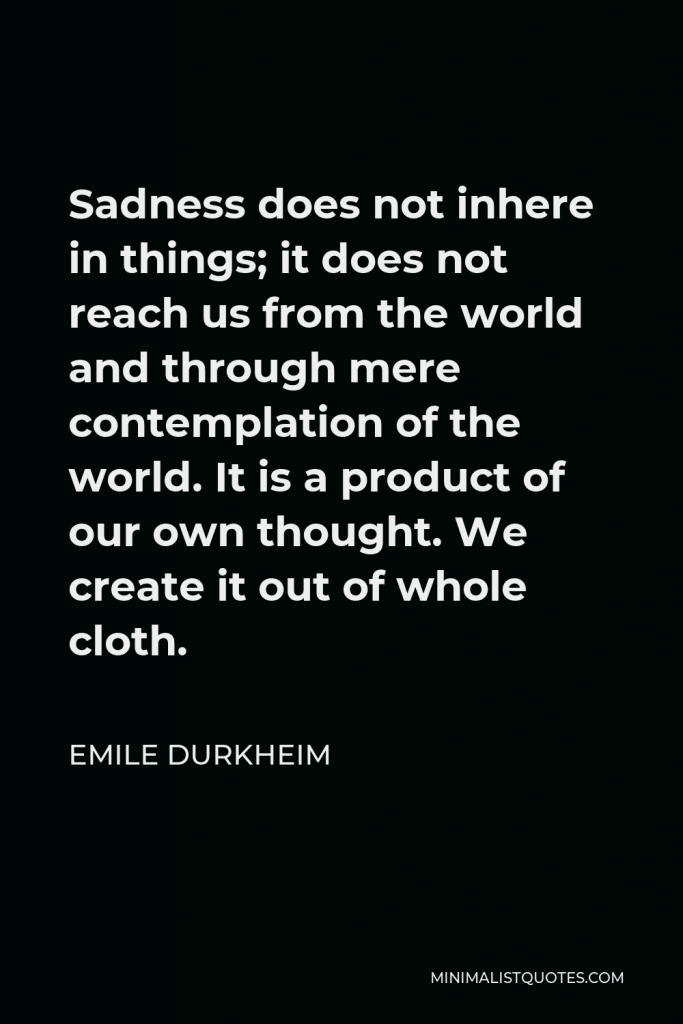

Sadness does not inhere in things; it does not reach us from the world and through mere contemplation of the world. It is a product of our own thought. We create it out of whole cloth.
EMILE DURKHEIM -





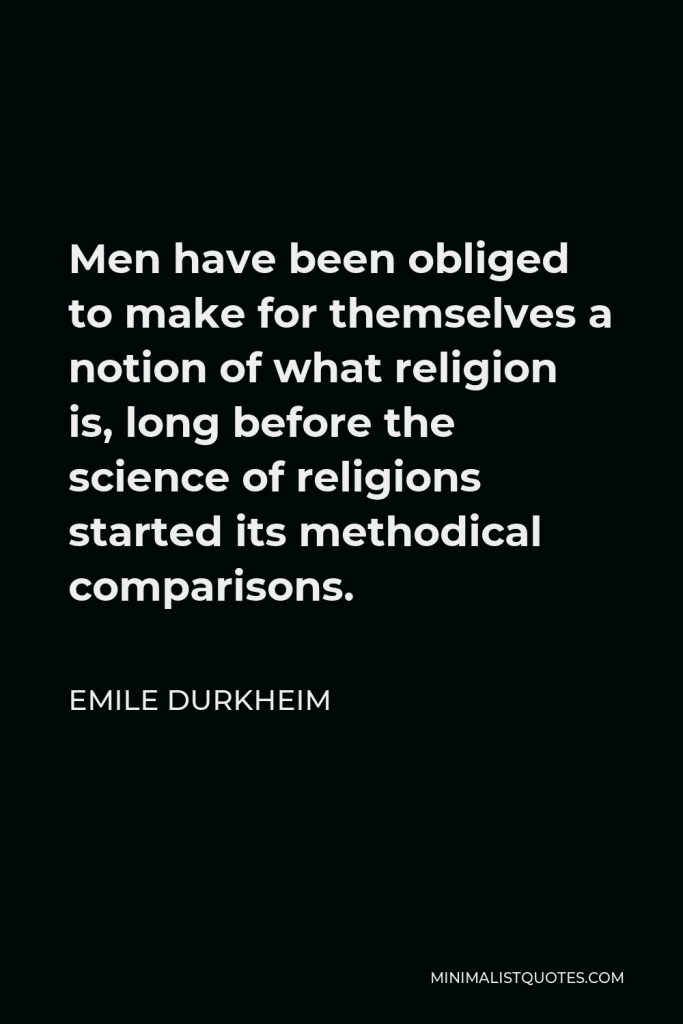

Men have been obliged to make for themselves a notion of what religion is, long before the science of religions started its methodical comparisons.
EMILE DURKHEIM -





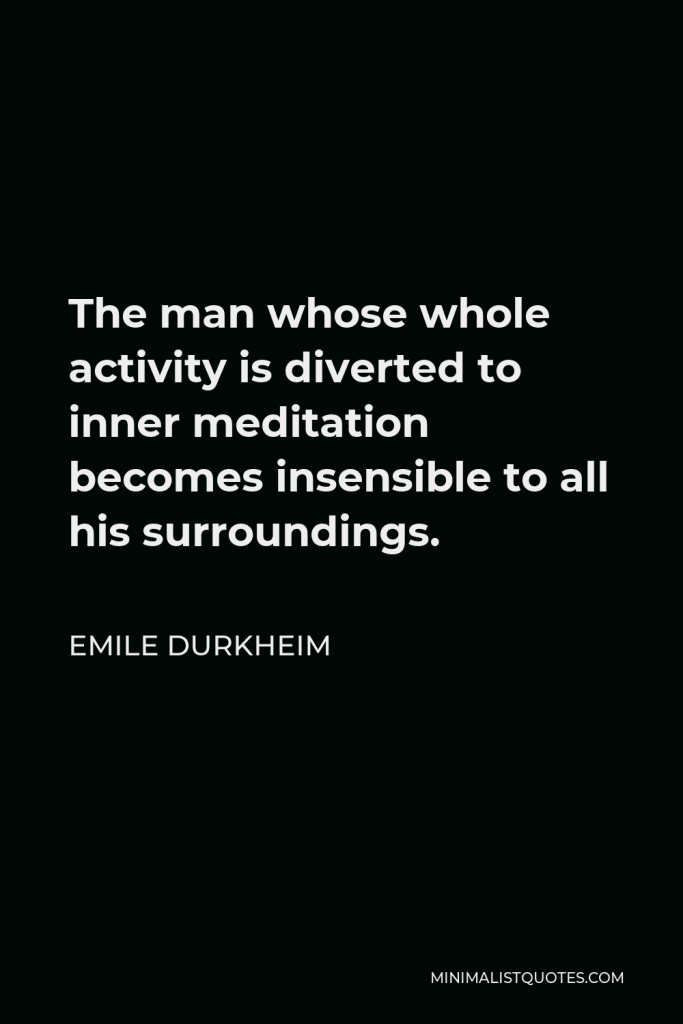

The man whose whole activity is diverted to inner meditation becomes insensible to all his surroundings. His passions are mere appearances, being sterile. They are dissipated in futile imaginings, producing nothing external to themselves.
EMILE DURKHEIM -







Too cheerful a morality is a loose morality; it is appropriate only to decadent peoples and is found only among them.
EMILE DURKHEIM -





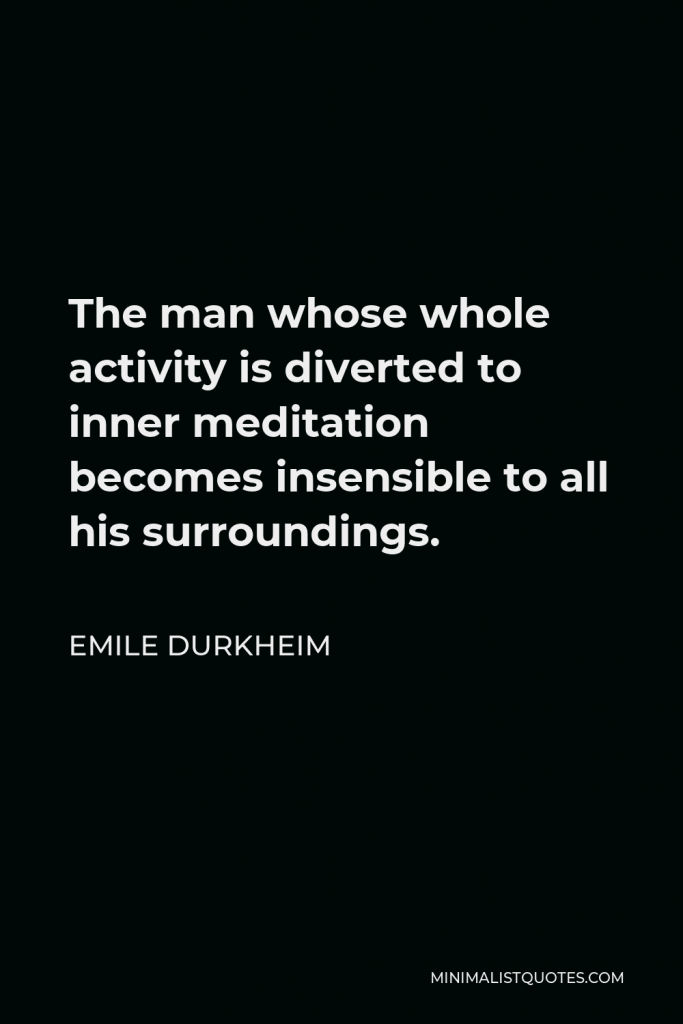

The man whose whole activity is diverted to inner meditation becomes insensible to all his surroundings.
EMILE DURKHEIM -





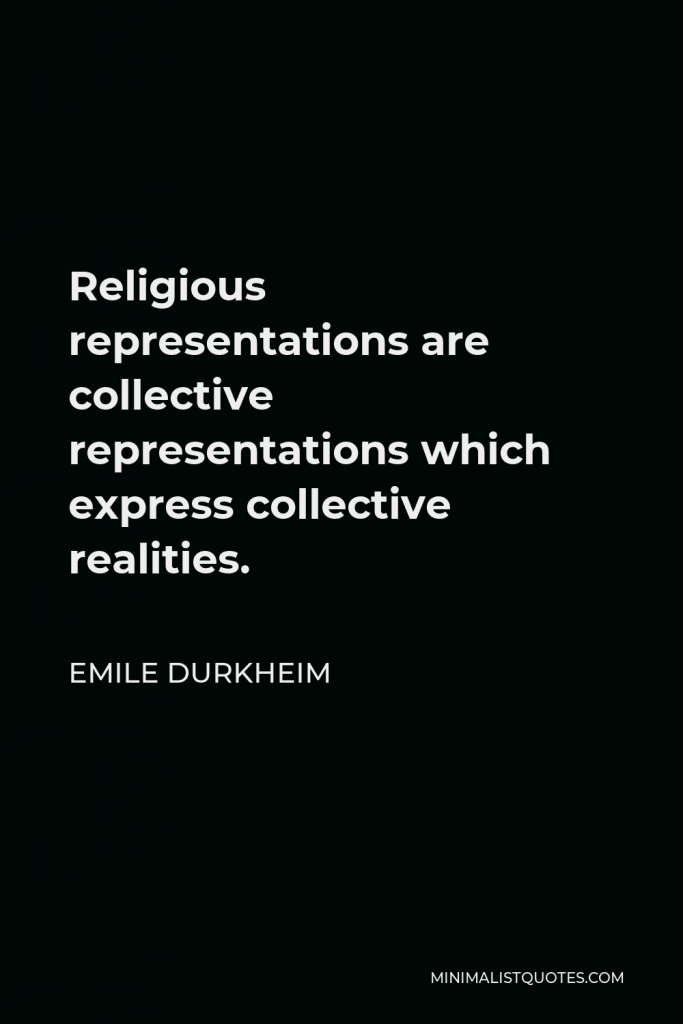

Religious representations are collective representations which express collective realities.
EMILE DURKHEIM -





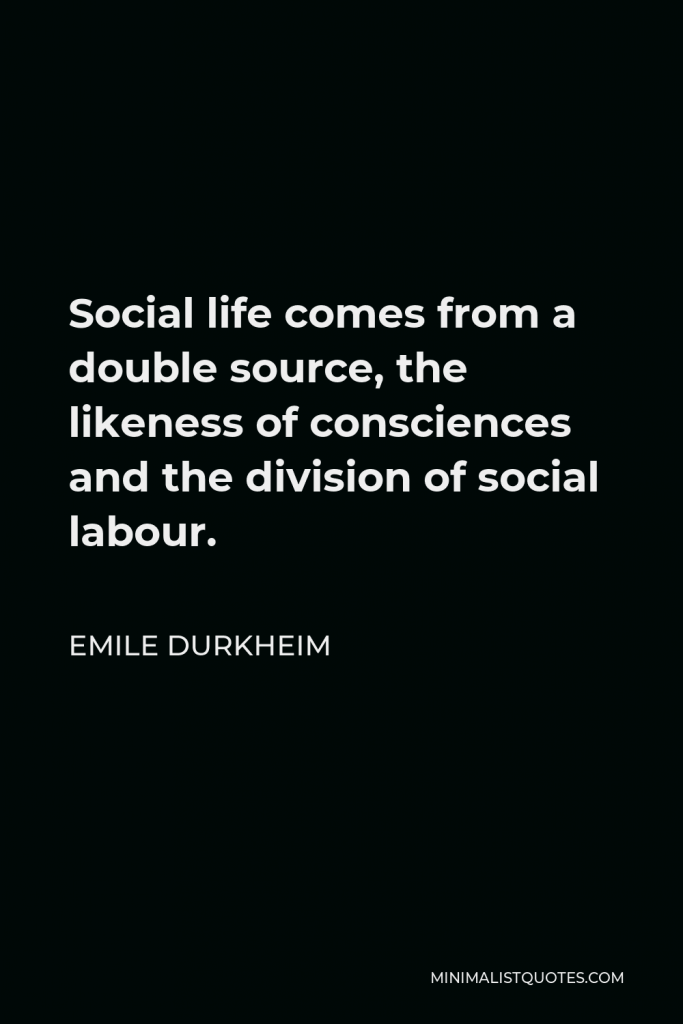

Social life comes from a double source, the likeness of consciences and the division of social labour.
EMILE DURKHEIM -







By definition, sacred beings are separated beings. That which characterizes them is that there is a break of continuity between them and the profane beings.
EMILE DURKHEIM -





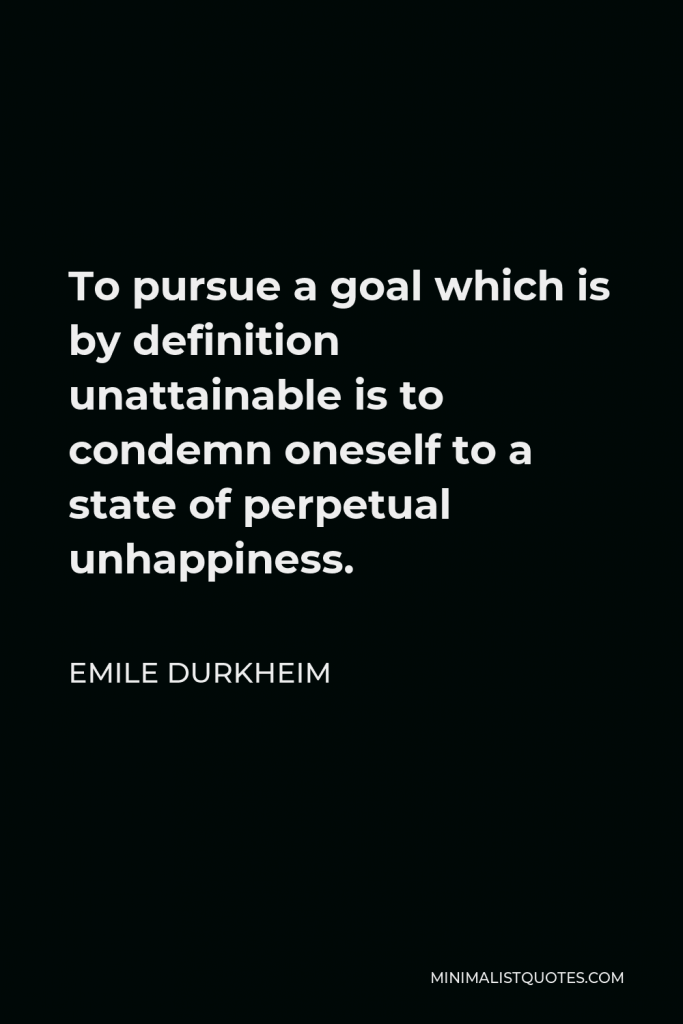

To pursue a goal which is by definition unattainable is to condemn oneself to a state of perpetual unhappiness.
EMILE DURKHEIM -





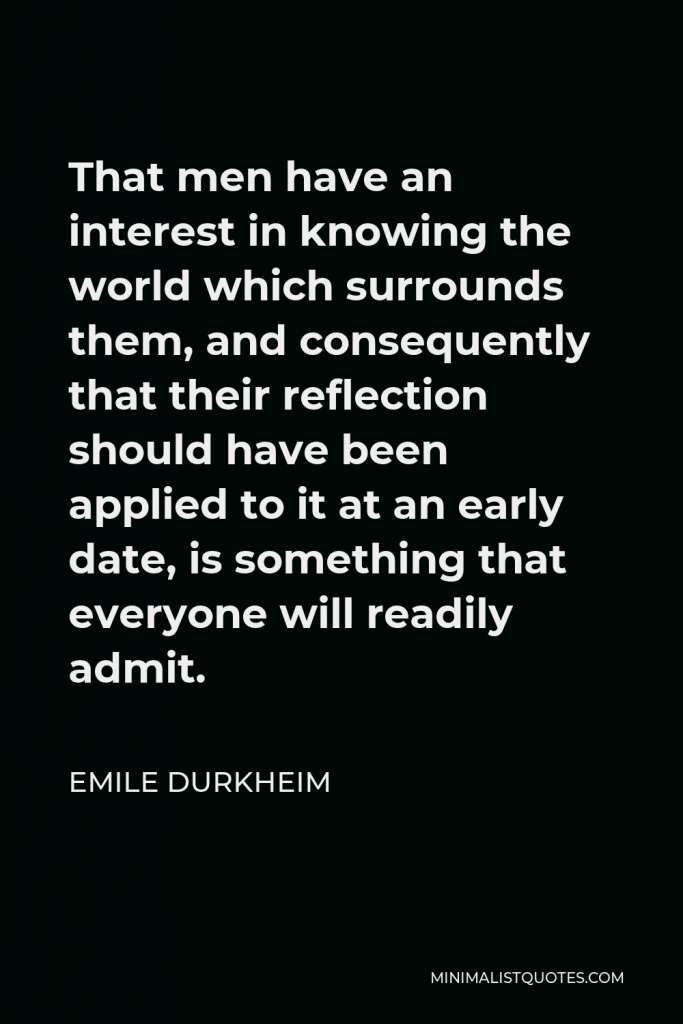

That men have an interest in knowing the world which surrounds them, and consequently that their reflection should have been applied to it at an early date, is something that everyone will readily admit.
EMILE DURKHEIM -





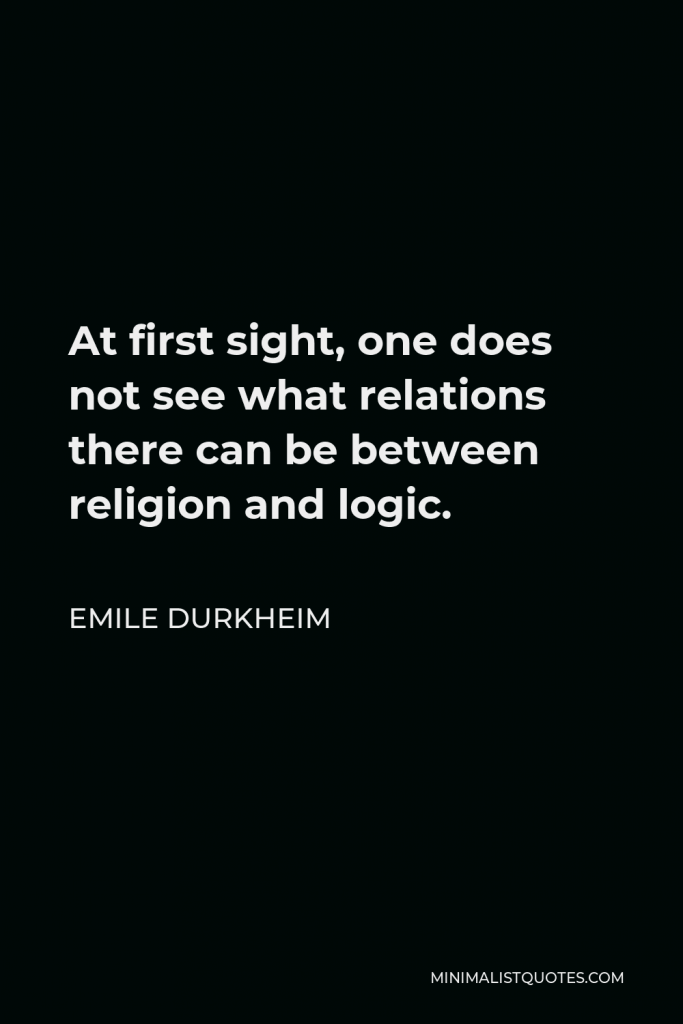

At first sight, one does not see what relations there can be between religion and logic.
EMILE DURKHEIM -





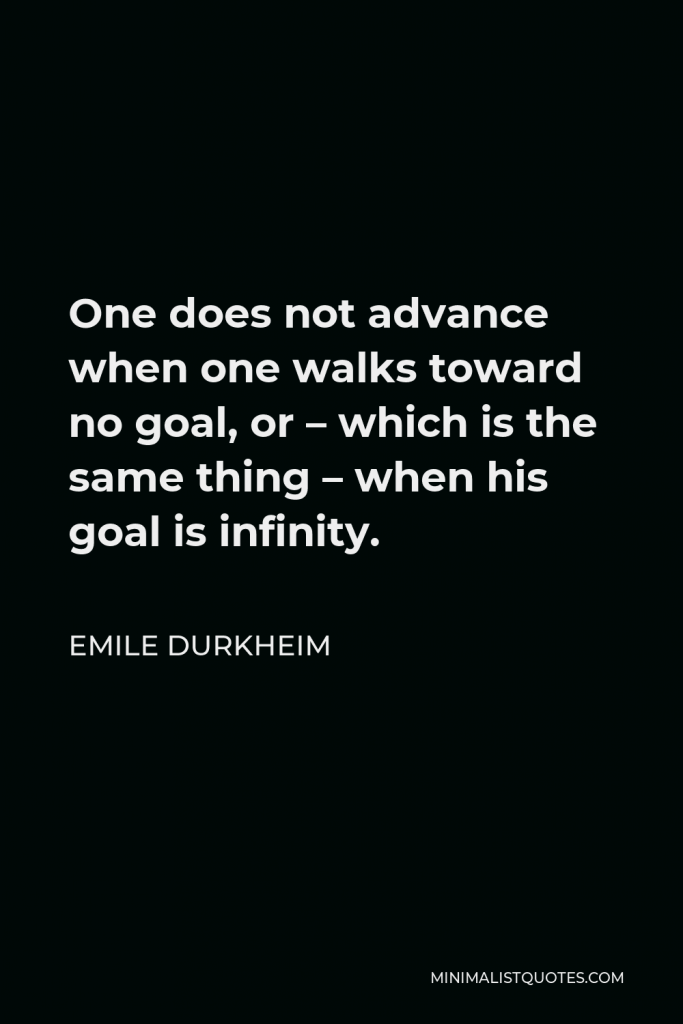

One does not advance when one walks toward no goal, or – which is the same thing – when his goal is infinity.
EMILE DURKHEIM
